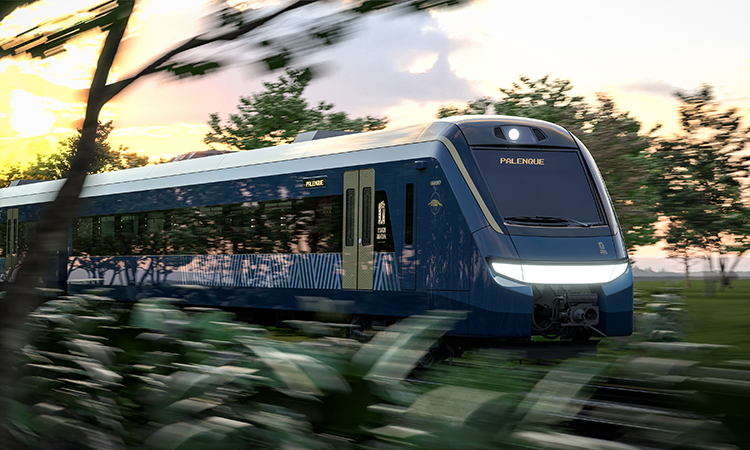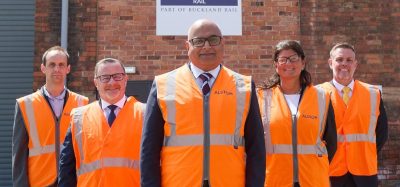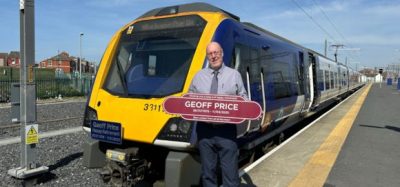Mexico’s Tren Maya inter-city railway project to be supplied by Alstom-Bombardier consortium
Posted: 10 June 2021 | Global Railway Review | No comments yet
A consortium led by Alstom-Bombardier will supply Mexico’s Tren Maya with 42 X’trapolis trains in three configurations and the full signalling system.


Credit: Alstom
The consortium made up of Alstom Transport Mexico, Bombardier Transportation México, Gami Ingeniería e instalaciones and Construcciones Urales Procesos Industriales has announced that it will supply Mexico’s Tren Maya – a large-scale inter-city railway project that is set to transform sustainable mobility in the country. The total value of the contract comes to approximately €1.3 billion, and the portion for Alstom-Bombardier amounts to nearly €1 billion.
The winning bid was announced on 26 May 2021 by the National Fund for the Promotion of Tourism (Fonatur), after its technical committee endorsed the consortium’s operational, technical and economic proposals. The factors that determined Fonatur’s decision to select the winning consortium were cost, degree of integration, delivery times and design proposals.
“We are extremely proud to have been selected to supply the Tren Maya – a train for Mexico, built in Mexico – as well as its full signalling system. The design of the three types of trains – Xiinbal, Janal and P’tal – is exclusive to Mexico and inspired by the Mayan culture, where the majestic jaguar’s lines, speed and beauty were inspirational elements for the train. The manufacturing of the Tren Maya will begin immediately, with Mexican labour, after the signing of the contract,” said Maite Ramos, General Director of Alstom México.
The consortium led by Alstom-Bombardier will be responsible for the design, manufacture and commissioning of 42 X’trapolis trains and the full signalling system, including the design, supply and installation of the European Train Control System (ETCS) onboard technology and over 1,500 km of trackside equipment, which will include ETCS, interlocking, traffic management and telecommunications systems, ultimately leveraging the complete Alstom portfolio. Moreover, the consortium is responsible for the construction of the maintenance workshops and garages and the after-sales service of the system’s equipment.
Alstom’s new X’trapolis model for Tren Maya will leverage the group’s manufacturing and engineering potential to produce a train that is up-to-date, competitive and reliable in the long term, based on trains which have already proven their merits. The X’trapolis train is a robust platform with a modular interior – all configurations are possible from the same lightweight bodyshell. Currently, 5500 X’trapolis cars have been ordered so far across the globe.
The train will also use components and expertise contributed by the former Bombardier; the most outstanding being its lightweight Flexx Eco bogie, designed for a maximum speed of 176 km/h. More than 8,300 units of the same bogie model have been ordered or delivered to date in countries including Saudi Arabia, Sweden, Norway, Germany and, most notably, in the UK.
The consortium will offer the X’trapolis in three distinct configurations: the first in a flexible and comfortable standard service set-up (Xiinbal); the second prioritising restaurant cars (Janal); and the last in a long-distance sleeper configuration (P’atal).
All versions offer passengers ample legroom at their seats and plenty of space to move around. Passengers will have more than enough room to store their luggage, with overhead racks borrowed from Alstom’s Coradia inter-city train, and vertical racks in each car. Since the floor is flat throughout, passengers with reduced mobility (PRMs) will have full liberty of movement. In the X’Trapolis, passengers will benefit from high-performance HVAC and wide windows onto the breath-taking scenery of the Maya region.
Tren Maya is a comprehensive 1,525km mobility project that aims to develop and connect the southeast of the country with the Yucatán Peninsula, and will be a great boost to mobility and economic growth in this region of Mexico. Overall, the project will generate 4,500 direct and 7,500 indirect jobs, which will generate significant economic development for the community. Alstom will manufacture the 42 trains at its Ciudad Sahagún Hidalgo plant.
Related topics
Digitalisation, European Train Control System (ETCS), Infrastructure Developments, Passenger Experience/Satisfaction, Passengers With Reduced Mobility (PRM), Rolling Stock Orders/Developments, Signalling, Control & Communications, Technology & Software, The Supply Chain, The Workforce
Related organisations
Alstom, Bombardier Transportation, Bombardier Transportation México, Gami Ingeniería e instalaciones








